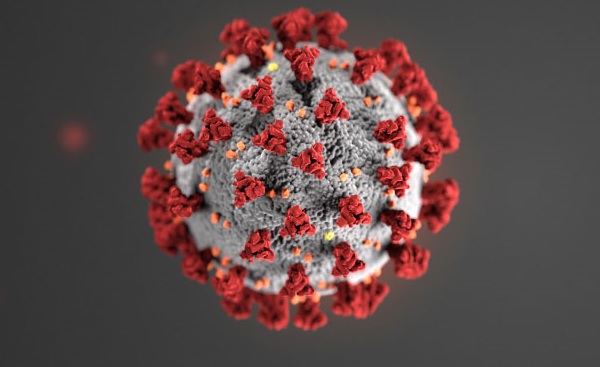
Last month, Luxembourg’s Prime Minister Xavier Bettel declared a state of emergency in light of the COVID-19 (coronavirus) pandemic. Following the approval of the Grand Duke and Luxembourg’s Parliament, the Chamber of Deputies, the state of emergency came into force on Wednesday 18 March 2020. This development would see the Grand Duchy enter a period of so-called lockdown for up to three months: schools are closed until after Easter (at the earliest), teleworking has been strongly encouraged where possible, restaurants, shops and other establishments other than supermarkets and pharmacies have been shut down and fines introduced for anyone found to be disrespecting governmental restrictions. The key message has been: “Stay home”.
Coping with Confinement
Coronavirus evidently poses a huge threat to public health, particularly (but not only) for older people and those with underlying medical issues. And yet, while the physical effects of this disease are most obvious, it is more important than ever that we protect our mental health, as well. The measures needed to curb the spread of this new virus, such as social distancing and home confinement, must not come at the cost of our mental wellbeing. Indeed, the World Economic Forum and Forbes are among several institutions now warning of a potential epidemic linked to mental illness within the current pandemic.
On the one hand, school closures, the transition to teleworking and family leave means that many families are now at home together almost 24/7, putting additional strain on parents who are juggling home office with home schooling on top of financial uncertainty, among other issues; on the other hand, those who live alone or already suffer from mental illness may be feeling more isolated than ever due to confinement and social distancing. Domestic abuse victims may feel trapped with their abuser. The list of the potential negative effects of this pandemic (and its accompanying measures) on both physical and mental health goes on.
As someone who is used to working from home, I can’t say my own everyday life has changed much due to confinement measures. However, it’s certainly not always easy, especially for someone with a history of mental illness. What has proven most beneficial to my own wellbeing is structuring my days and trying to follow a normal routine: getting up at a set time and getting washed and dressed, taking regular breaks and going outside for fresh air or a walk (within the current restrictions, of course) at least once a day. Regular exercise (even just some gardening or a home workout) can do wonders for mental health. This could also be a time to do something around the house that you’d been meaning to get around to but never did. But don’t forget to keep work and family or leisure time separate; it helps to have at least one work- or school-free room at home. Equally important is remembering that not everyone has the resources or energy to learn a new skill or do something exceptionally productive during this time. And that’s perfectly fine – this is not a summer holiday, but an unprecedented crisis. Just do what you can during this time to protect your overall health and try to remember that these measures are necessary but, like the crisis, they are also temporary.
Psychological Support Services
In addition to finding ways of coping with confinement and other coronavirus-related issues on your own, professional support is available for those who need it in Luxembourg. While the focus remains protecting the physical health of the population from the virus, Luxembourg’s authorities have been quite proactive in setting up psychological support services for both residents and cross-border workers, many of whom work in the healthcare sector.
At the start of last week, the Ministry of Health added a multilingual (English, French, German and Luxembourgish) psychological support service to the COVID-19 national hotline (8002-8080), set up at the beginning of the crisis. The service is run daily (07:00-23:00) by qualified teams of psychologists, who in turn rely on support from a larger network of psychotherapists and other actors in the psychosocial sector. In its first five days, according to Dr. Mareike Bönigk (Head of Psychological Support in the ministry’s Crisis Unit), the service received 150 calls, mostly from people who were afraid of getting ill, dying or losing a loved one to coronavirus. Indeed, people who were already vulnerable or felt alone before the crisis have had these feelings exasperated with the COVID-19 outbreak and accompanying restrictions. As such, Dr. Bönigk stressed the importance of ensuring that the population is in “good hands” even in times of crisis, adding that Luxembourg’s existing healthcare system is in a good position to offer this support.
Earlier this week, on Tuesday 7 April 2020, the Luxembourgish mental health association d’Ligue and its partners, in collaboration with the Health Ministry, launched a complementary website dedicated to mental health during the crisis: covid19-psy.lu. According to d’Ligue’s psychologists, the website recorded almost 2,500 visits on its first day of operation. On the other hand, there has been a decline in the number of people using the association’s other services, a trend which has been attributed to the creation of new services, such as the above hotline. As such, it would be wrong to assume that there is less demand for psychological support; it is rather the case that those in need of such services have an expanded offer from which to choose - a development which can only be a good thing!
In addition, SOS Détresse (45 45 45) has been offering anonymous and confidential psychological support via telephone and online (email) since before the COVID-19 outbreak. Having spoken to one of the association’s psychologists recently, I learned that phone calls have increased by around one-third since the start of the crisis with many callers citing COVID-19 as their main concern. In March alone, SOS Détresse received 320 calls of which 115 were about coronavirus (for example, concerns related to confinement, cancelled meetings, social life and general fear over the disease). Similarly, messages sent to the online service increased by almost 50% last month. Among the main issues brought up through this service were concerns about change and isolation, the reappearance or development of psychological problems, conflict related to a new living situation and relationship problems.
Another initiative is the recently launched Aktiv Doheem online fitness platform of the Ministries of Sport and Education in Luxembourg. Although the platform is primarily aimed at physical health, the impact of regular exercise on one’s mood and overall wellbeing should not be underestimated.
Additional psychological support services in Luxembourg include:
- Femmes en Détresse a.s.bl., an assoication which offers various support services to victims of domestic abuse via email (organisation@fed.lu) or over the phone (see https://fed.lu/wp/ for more details)
- Kanner a Jugend-Telefon (KJT), which offers confidential support via telephone (116 111) for children and young people in difficulty
- Elterentelefon, telephone support service (26 64 05 55) for parents seeking advice on education matters or difficulties regarding their children
- A helpline is also available for parents and children struggling with school-related and psychological issues during the COVID-19 crisis via tel.: 8002 9090
- Local associations such as Caritas Luxembourg have set up support services for other issues related to the crisis, such as the Caritas Corona-Helpline (set up on 4 April 2020) for those in financial difficulty (tel.: 402131-999 or email: helpline@caritas.lu).
Whether you have a history of mental illness or only now find yourself struggling to cope with or adapt to this new “normal”, help is out there and, as cliché as it sounds, you are not alone. Together we will overcome this crisis and return to some form of normality. Until then, we should do what we can to stay physically and mentally healthy, even if that means reaching out for help - that's what the support services are there for, after all.









